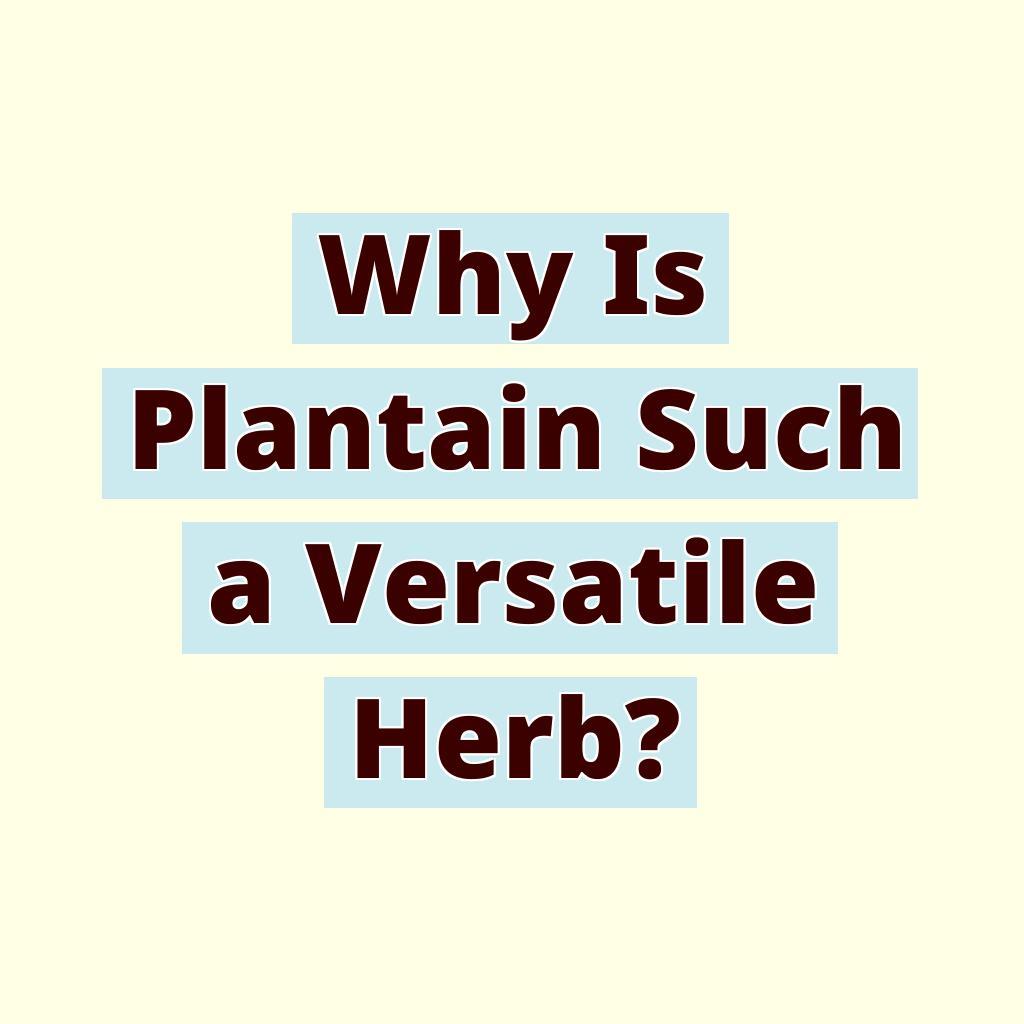Plantain, also known as Plantago major, may be a familiar sight to many as a common weed found in lawns and gardens. However, this humble herb is far more than just a nuisance to be removed. Plantain is actually a versatile herb that has been used for centuries for its numerous health benefits and culinary uses. In this blog post, we will explore why plantain is such a versatile herb and how you can incorporate it into your daily life.
What is Plantain?
Before we delve into the versatility of plantain, let’s first understand what this herb is. Plantain is a perennial herb that is native to Europe but can now be found growing in various regions around the world. It is characterized by its oval-shaped leaves that form a rosette close to the ground. The leaves are typically dark green with prominent parallel veins.
Culinary Uses of Plantain
One of the reasons why plantain is such a versatile herb is its wide range of culinary uses. The leaves of the plant can be eaten both raw and cooked. When consumed raw, plantain leaves have a slightly bitter taste but are packed with nutrients. They can be added to salads or green smoothies for an added nutritional boost.
When cooked, plantain leaves can be used in a variety of dishes. They can be sautéed, steamed, or added to soups and stews. Plantain leaves have a mild flavor that complements a wide range of ingredients, making them a versatile addition to any kitchen.
Medicinal Benefits of Plantain
In addition to its culinary uses, plantain also offers a host of medicinal benefits. The leaves of the plant contain compounds that have anti-inflammatory, antimicrobial, and antioxidant properties. As a result, plantain has been used in traditional medicine to treat a variety of ailments, including skin conditions, respiratory issues, and digestive problems.
Plantain leaves can be used topically to soothe insect bites, rashes, and minor cuts and wounds. They can also be brewed into teas or tinctures to help alleviate coughs, sore throats, and digestive discomfort. The versatility of plantain as a medicinal herb makes it a valuable addition to any home remedy kit.
Gardening with Plantain
If you have plantain growing in your garden, consider yourself lucky! Plantain is a hardy plant that requires little maintenance and can thrive in a variety of growing conditions. Whether you have a sunny garden bed or a shady spot under a tree, plantain is sure to flourish.
In addition to its resilience, plantain can also benefit your garden in other ways. The plant’s deep roots help improve soil structure by breaking up compacted soil layers. Plantain can also attract beneficial insects to your garden, such as pollinators and predatory insects that help keep pests in check.
Cooking with Plantain Seeds
In addition to its leaves, plantain also produces seeds that are edible and nutritious. Plantain seeds, also known as psyllium seeds, are small and black with a distinct mucilaginous coating. These seeds can be ground into a powder and used as a natural thickening agent in soups, stews, and baked goods.
Plantain seeds are also a good source of dietary fiber, which can help support digestive health. They have a mild, nutty flavor that can enhance the taste and texture of various dishes. Adding plantain seeds to your cooking repertoire can further expand the versatility of this herb in your kitchen.
The Bottom Line
In conclusion, plantain is truly a versatile herb that offers a wide range of culinary, medicinal, and gardening benefits. Whether you choose to incorporate plantain leaves into your salads, brew them into teas for their medicinal properties, or use plantain seeds as a thickening agent in your cooking, this herb has much to offer.
Next time you come across plantain growing in your garden or lawn, consider the many ways you can make use of this humble herb. By embracing the versatility of plantain, you can not only enhance your culinary creations and home remedies but also support a thriving garden ecosystem. Explore the many facets of plantain and unlock the full potential of this remarkable herb.
